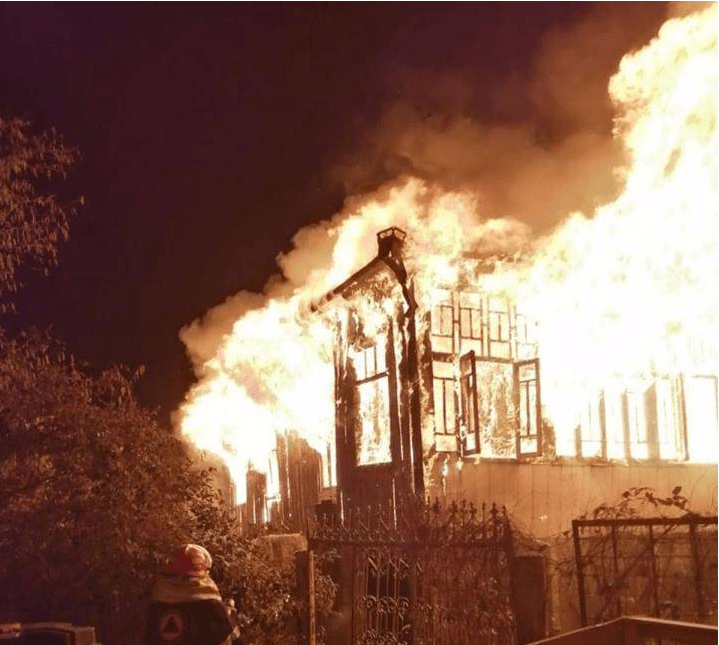The Parliament of Georgia opened its Spring Session on February 4 with a moment of silence to honor six persons who were burned to death in the fire that erupted in Bagdati Municipality of Imereti Region in western Georgia last night. The death of socially vulnerable citizens triggered mixed reactions in Tbilisi.
Deputy Health Minister, Giorgi Tsotskolauri told reporters today that “social assistance was not suspended for the family… the only change took place in a period between October to December, when the family was granted a subscription number. So, the family received the three-month compensation in late December 2019 at GEL 2,040 (USD 700).”
The opposition, which planned to hold a picketing at the Parliament building to demand the transition to the proportional electoral system today, postponed its rally for February 5. Gigi Ugulava, leader of European Georgia called on the Parliament to postpone opening of its session for the next day as well.
However, Parliament’s Vice Speaker Gia Volski told reporters that “linking this issue with the session is a peak of speculation, which has nothing to do with morality.”
Other members of the parliamentary majority and the opposition also commented on the tragedy. “We decided that making political statements would be irrelevant today,” ruling party MP Mamuka Mdinaradze said at the session, adding that postponement of the session for February 5 would mean violation of the Parliament’s Rules of Procedure.
Asked by journalists what the government does to avoid hunger among children, Mdinaradze said: “This tragedy has nothing to do with hunger. Fire and hunger have nothing in common.”
“The misery of Bagdati shows that no one cares for the [poor] families and children… It was not a secret that they were starving. Media live streamed the difficulty of the family not so long ago,” Eka Beselia, independent MP stated.
In its statement released on February 4, Human Rights and Monitoring Center (EMC) noted that the Bagdati incident “clearly shows the destructive consequences of poverty created by the present political and economic system.”
The organization also focused on the absence of state policy to combat homelessness, noting that “despite a persisting problem of lack of adequate housing, providing Georgia’s vulnerable groups with safe and adequate housing, as well as support system based on their needs has never been the government’s priority.”
This post is also available in: ქართული (Georgian) Русский (Russian)

